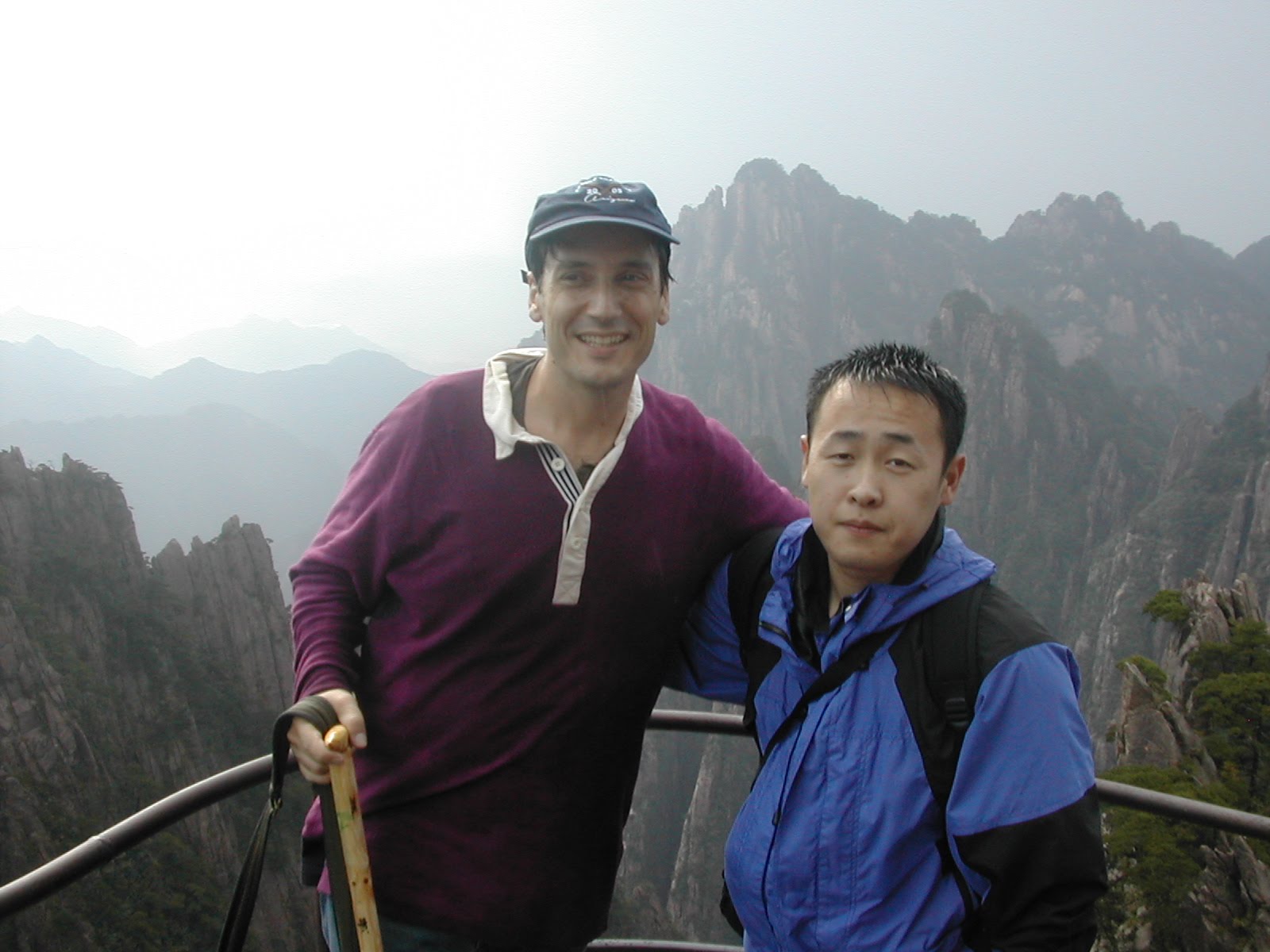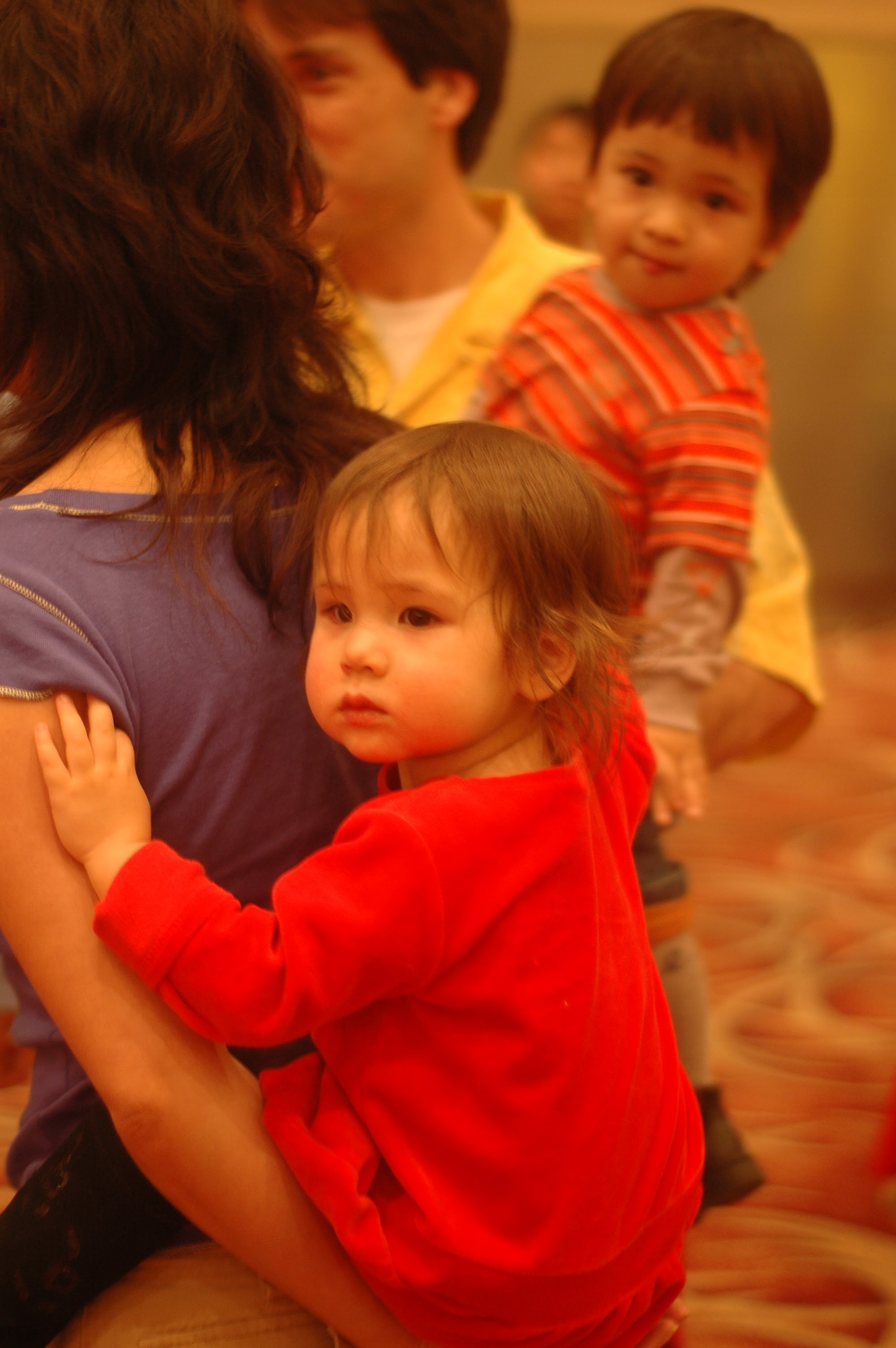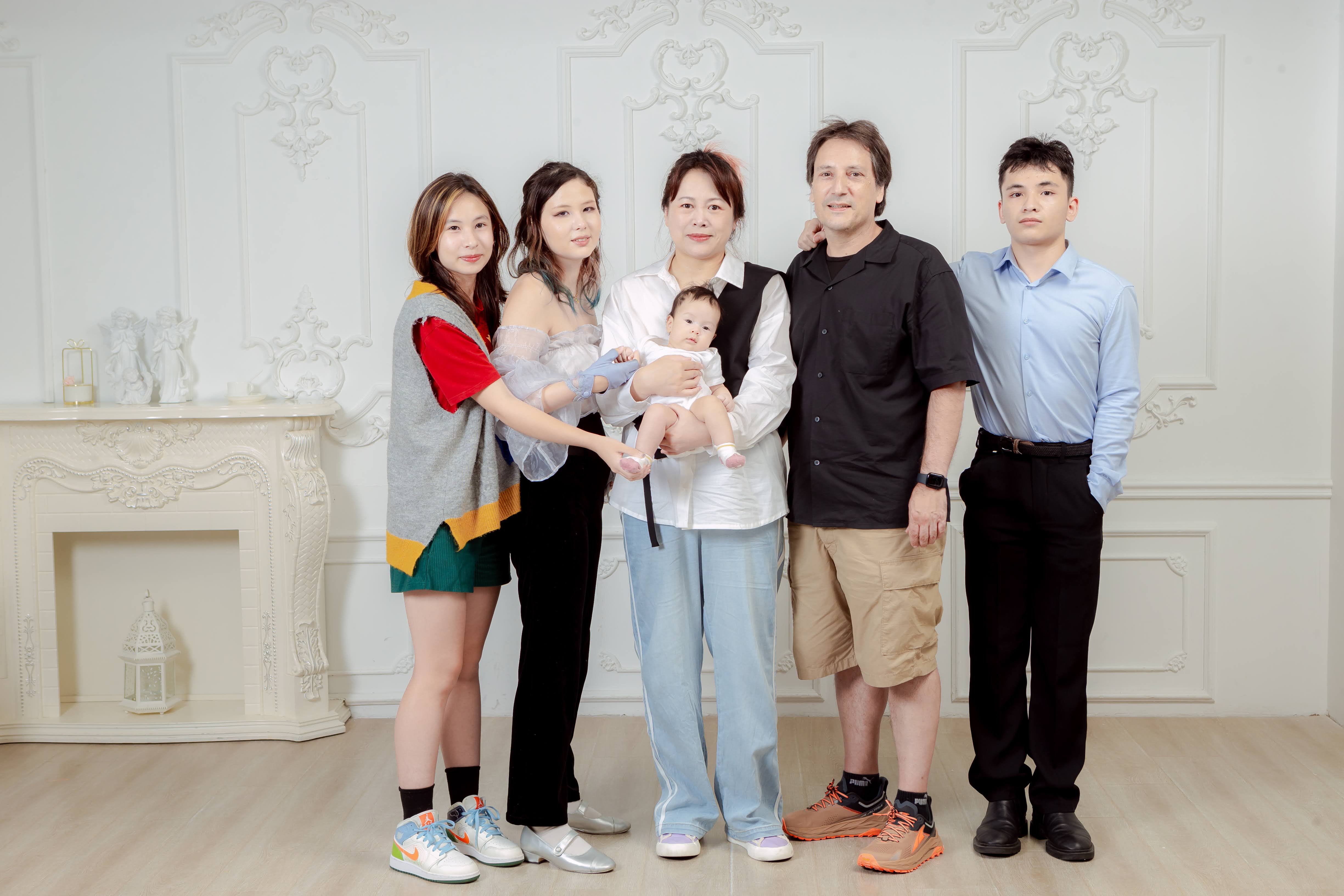18 Years at Microsoft
I remember my first day at Microsoft. September 13th, 2005. I took a taxi to Sigma building and was greeted by Linda Mao - a fellow PM who was tasked with making sure I felt welcome and that I got onto the bus to the airport. A typhoon caused our flight to be delayed and then eventually canceled. So, we ended up flying to Shanghai and taking a small bus to our hotel near Huangshan (Yellow Mountain). The bus ride was six hours and my seat would not stay prone so I sat as if on a bench seat the entire time. We arrived at the hotel at 3 or 4am, caught a few hours of sleep, and were ready for the kickoff event at 8:30am. It poured, I mean poured like through everything, on our hike the next day. Like many things, best laid plans went sideways and we adapted.
On Huangshan mountain in 2005.
On my first actual day in the office, I found my desk at the end of a narrow aisle, flanked on one side by cubicles and on the other side by a wall. A desktop computer was waiting for me. As I started to set it up, one of the laowai’s who had been there a while (like a year) stopped by to introduce himself. Jay Herbison. He asked me what project I was working on. Everyone asked this question, which I thought was odd since I only had a vague idea. We talked a bit about college football. And then, at the point in the desktop setup where I had to enter my initial password. Jay told me about the password complexity rules and that I’d need to change it every 90 days but it’s really every 72 days because of some policy reason. I thought to myself - I won’t need to change it, they will figure out I am a fraud well before then. I lasted to change that password and many passwords - until changing passwords became not a thing. The fear of being found out, this imposter syndrome, pushed me to do good if not great on project after project (which I’ll detail elsewhere).
But those are just asides to my personal takeaways of my time at Microsoft.
Providing for my family
I did not grow up poor but as the son of a firefighter with seven siblings, I also did not grow up with a lot. I worked part time in high school and college and when I moved out of my parent’s home in 1989, I needed my first month’s paycheck to clear in order to make rent. My finances got set to zero once as an adult and I needed to rebuild assets a second time. I have four children who are at the center of my world. The basic thing beside loving them is to provide for them. And for the past 18 years, I’ve been able to do that with my employment at Microsoft. Sure, I have some skills and could find other opportunities, probably not China. The one I did find was Microsoft. I am grateful to my first manager, Baogang Yao for taking a bet on me when I was a non-typical PMII hire. I am grateful to other China baased managers and colleagues for continuing that bet; notably Steve Macbeth, Tony Chor, Steven Chen, Yongdong Wang, Stephen Siu, and Lei Fu. I am forever indebted to Microsoft for enabling me to provide for my family. It is in no way an assumed privilege.
A sense of belonging
As an extreme introvert I need a reason to speak to someone. Work projects gave me such a reason and over the years have helped me form relationships that transcended projects and provided me with a sense of belonging. When I think of the people, I think of the projects and when I think of the projects, I think of the people. Hongqiao Li, Kun Wu, and Zhijun for podcast search and who would go on to help build Bing Video Search. Jay, Wenbo, and the team who built QOS server for OCS - the first end to end (small) product built by ATC. The fabulous and ambitious STCA PM team Tony put together, especially Tim, Jill, Simon, Chuanxin, Shuang, Gene, MJ, Yuguo, Mark, (well, many more). The Exchange/O365 team including Hongze, Naijun, Bo, Warren, Ben, Julien, and Julie. The Office Web Apps team of Fu, Michael, Steve, Jane, Poonam, and many more. Finally, for all my direct reports over the years, I valued our relationships most of all. There are so many that stand out to name a few would be impossible.
A sense of belonging also came from leaders who went out of their way to include and support me. Brian McDonald insisting we have a 1:1 whenever I visited Redmond. Breakfast sessions with Hugh Williams. Richard Qian taking an interest. Derrick Connell giving me a framework. Steve Macbeth listening. Rajesh Jha acknowledging me after a review. Baogong Yao going out of his way years after the fact to correct a misunderstanding. Mike Morton’s transparency. Yongdong Wang trusting me in challenging situations. Tony Chor seeing through me and giving me confidence. These small acts of humanity had an outsized impact on my sense of belonging.
A platform for impact
In interviews, I’d often ask a candidate an open ended question of “what can Microsoft do for you?” There is no right or wrong answer, it is just something I am truly curious about and helps establish a rapport. A not insignificant portion of the candidates saw Microsoft as a platform. A platform for their career, or for skill growth, or as a platform for impacting people’s daily lives.
For me, having worked for small companies and large companies, I could create more product and grow my technical skills faster at small companies. But for impact on people’s daily lives, hands down it has been my work at Microsoft. It’s a cliche, but at Microsoft, by making a small change you can have an outsized positive impact. Microsoft has multiple sector leading products providing the opportunity. In my 18 years, I impacted the peoples lives who use Bing, Office, Office365, Exchange, and OCS. An example is from Office where I led the PM team working on PowerPoint Online. I would read the user feedback verbatim. At first, the feedback was heartbreaking. A student’s homework would be lost. Or the app kept crashing, preventing the homework from even being created. These were students who had no other choice but to use our product. So, we doubled down on fundamentals and reduced the effort on shiny new features. “What’s in the App, works” was my mantra. And the product got better. Much, much better. And then the verbatims started asking for the shiny new feature which we in turn delivered in turn.
Wish I could have enjoyed it more
Maybe it’s the way I wired, maybe it’s the large company dynamics, or maybe it’s being surrounded by so many smart people, but I felt tremendous pressure during my time at Microsoft. I regret not finding a way to deal with the pressure and wish I could have enjoyed the ride more. Sometimes, the pressure was obvious to me and others - getting a lizard brain and being unable to answer a question at review or visibly shaking during a presentation. Sometimes, the pressure was only obvious to me and I’d let it out by sitting under my desk and rocking. Maybe the pressure was needed for me to get through the work - I don’t know. I’ve learned, now in the absence of the pressure, I can still work and create and enjoy the process. Maybe the pressure is rooted in always thinking I was a fraud, or being judged. It was unhealthy and led to appetites and attitudes that were not healthy for me or my loved ones. I’ll give an example: There was an Office365 demo day back in 2013 and along with our director Michael Chang I was selected to demo a new feature our team had built. My job was to be the click monkey and maybe provide a little banter while Michael spoke. Hundreds of people in the audience, maybe 1000 online. A great moment for our team. My hands could not control the mouse. When I clicked my hand would involuntarily move and miss the target. Somehow, I stumbled my way though but it was obvious how nervous I was. Almost worse than the awkwardness of the five minute demo was the hours I obsessed over it both before and after.
Wish I could have been more present for my loved ones
Work consumes me. I’m always thinking about it. In the first half of my career when I was a developer, I’d be constantly thinking about systems and code. Early at Microsoft, it was about specs, process, and solutions. Later, not for the better, thoughts focused on people, problems, and upcoming critical conversations. What remained constant was the consumption with the work. The late nights, the working weekends, the business trips - are all obvious times you are physically away from your loved ones. But by being consumed by work, means you’re not fully present even when you are physically present.
There are the daily life cases - birthdays, graduations, anniversaries, movie night - where I regret being obsessed with work and not being in the present moment.
There are the hard cases. When a parent is on the road to transitioning, a son should be there for them. When a spouse faces a terminal illness, a husband should be there for them. When a child faces a devastating circumstance, nothing else should matter to that father.
Was I there for my parents, my spouse, my children? Physically, mostly. Emotionally, as much as I could be. In retrospect, it wasn’t enough. I should have dropped everything and got on that plane. I should have blown off the next morning meetings and sat through the night with the loved one. I should have been emotionally present. This is my regret.
My eldest kids at a work event in 2005.
Family portrait 2023.


